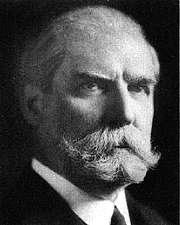Smart money is saying that someday soon, thanks to Hillary or thanks to someone else entirely, we are definitely going to have some sort of nationalized health care system in the United States. This would be a messy hodge-podge between blazing a completely new trail, and traipsing over old ground. For the better part of a century, America has been the sole hold-out in some socialist exercises, and partaken grudgingly in others. The best comparison for purposes of precedent, would no doubt be Social Security. Health care is simply the next step; like retirement, it enjoys a certain urgency in availability, purely psychological in nature. All who doubt that may ponder the list of goods and services people “need,” which nobody’s talking about nationalizing just yet. Gasoline. Childcare. Food and baby formula. Delivery services for the sick and infirm.
No, nationalizing health care is not about giving people things they need. It’s about controlling people. Once we are so controlled, what would life be like? Well, like everyone else, I didn’t start pondering this just yesterday. Nor are we the first country to start nationalizing things that people supposedly need. I grew up within just a handful of miles from Canada, which is very proud of it’s own nationalized health care system, and whose subjects brag about it frequently. That is probably the least draconian of all the socialist utopian enclaves we can study, with the failed USSR experiment being on the other end of the scale. I’ve been making an informal study of these for decades, and I’ve noticed there is a list of surprises they offer for their subjects once the socialized delivery system is turned over and throttled up. These surprises, for the most part, are unpleasant. They always seem to arrive in the same sequence, more or less, and they apply to any enclave, nationalist or otherwise, that becomes collectivist in nature when providing something. The first handful of them are very subtle; the others, not so much. And so I’ve identified these unpleasant surprises and given them numbers and names. When the American universal health care system is in full force, it seems to me, we can count on each and every single one of these surprises. We should prepare for them now.
Surprise Number One is the Surprise of the Mommy. There is someone getting concerned when you run out of stuff, whose job it is to make sure you don’t. This is not really a surprise, because it was the objective under which the package was originally sold in the first place, and of course it isn’t unpleasant at all except to those who never wanted such a thing. Collectivist administrations almost always arrive by way of democracy, so usually those people are far-and-away in the minority.
Surprise Number Two is the Surprise of Perversion of Thought. People become unmotivated, uninspired, and depressed; much of the necessity involved in jumping out of bed in the morning, tackling life, was a knowledge that there was a pressing material need to get life tackled. With that gone, life is diminished to a ritual of motions whose executions are supposed to be performed in sequence, at certain times. Like a dance that never changes. Not only that, but critical thinking becomes labored and difficult; subjectivity and objectivity to change places. It’s a subjective thing to say a person or household’s standard of existence has descended to the point that “something must be done.” In order to build machinery dedicated to doing that something, you have to define a way of measuring the necessity of doing it, so the subjective is now objective. On the other hand, when people have opportunities taken from them, and choices made on their behalf that used to be theirs to decide, that is an objective thing. It is measurable. The bureaucrats and administrators and spokespeople will re-define this as subjective, so they can place it into doubt. “We’re doing it for the children” or “It’s for the common good.” The Surprise of the Mommy made the thought process less urgent; now it is pointless. This is the first of the unpleasant surprises, and by far the most subtle. It has meaning only to those who think for themselves.
Surprise Number Three is the Surprise of Micromanagement: People realize the Surprise of the Mommy isn’t always helpful to them. The people who worry about you running out of stuff, don’t work for you. They write you up for failing to put your kid in the kind of car seat they think you should be putting him in, for having a gun, for eating saturated fats, for owning a Bible and for smoking at home. Also, if the bureaucracy has figured out some of your habits do, or simply might, increase the costs of providing for you, you will be required to discontinue those habits whatever they are. In short, everyone has to live life the same way. This is almost as subtle as Surprise Number Two, but not quite so much. It has meaning to those who wanted to nurture dreams, and couldn’t nurture them because they were too worried about starving. Some of those dreams — most of them — depended on the liberty to live life differently. So the dream that was on a deathbed, on life-support, terminally ill, that was supposed to be medicated and healed, is in fact being euthanized.
Surprise Number Four is the Penny-Ante Surprise, and like the Surprise of Micromanagement, it consists of another unpleasant revelation of the Surprise of the Mommy. This is where the people who supported the utopia out of pure jealousy, get their come-uppins. You work harder than I do, but make twenty thousand dollars fewer per year. Equalizing this seems like the most desirable thing, and it seems at first that the equalization wouldn’t affect you in any way. But it turns out this equalizing is never done in terms of tens of thousands of dollars; it’s done in fractions of pennies, which means nobody escapes scrutiny. Also, nobody escapes the chasing-of-pennies, which for many of the supporters was the point of the whole exercise. As free but impoverished people, they added and subtracted from sunup to sundown and got sick and tired of doing it. Now, they’re still adding and subtracting, and someone is forcing them to.
Surprise Number Five is the Surprise of the Union, which is produced from the Surprises of Micromanagement and the Penny-Ante Surprise. We are a union shop now, and as such we are all expected to follow rules. These aren’t like ordinary rules. Nobody debates these rules. People who have been known, all their lives, for flouting rules for the sake of flouting rules, or priding themselves on their diligence in questioning the rules, tremble in fear at these. Hardened men known for thumbing their noses at the law, for fearing no authority figure, police included, accustomed to swimming through life like sharks grabbing what they want, once told what’s expected of them comply without a peep of protest. This is the final irony. A people liberated from concern over empty stewpots and empty plates and empty wallets and empty bellies, will now never be liberated from anything else; and not from those concerns either. You are expected not only to follow the right rules; you are further expected to have the correct opinions about things. Talk about health care with a Canadian citizen sometime. Notice the predictability with which he props up the glorious Canadian health administration. But also take note of the lack of genuine passion in his remarks. He has to pretend to be describing how he feels about it, but he’s just running through talking points. This is true of all socialized countries; people have the opinions they’re supposed to have, and they will have those opinions without feeling too strongly about them. Opposing opinions are things strange and foreign to them, because they haven’t heard too much of those opposing viewpoints. They haven’t been allowed to hear them.
Surprise Number Six is the Surprise of the Killjoy. The people whose job it is to make sure you don’t run out of stuff, also have to make sure you don’t get too much. This is the really big shocker, because this is where the dreams-on-deathbeds that were supposed to be medicated and to blossom once starvation was rendered impossible, but were then euthanized, flatline for the last time. People realize there’s a limit to what they can have this year, and the next year, and the year after that. This is the least subtle of all the surprises. Whoever doesn’t get depressed about the whole utopian experiment at this point, never will.
Surprise Number Seven is the Surprise of the Idiot Administrator. Political leaders become unimpressive, mediocre people engaged in unimpressive, mediocre things. That’s ignoring, for the moment, graft and corruption which are also inevitable. The unimpressive, mediocre idiot leaders are taking responsibility for very little when all’s said and done. They see their job as one of distributing assets once the assets have been accumulated, not one of making sure adequate assets are there. And in distributing the assets, all they do is follow rules that they themselves write. One has to struggle to think of any occupation, in any type of enclave, that demands less out of the person engaged in it, or invests more authority or material reward.
Surprise Number Eight is the most painful one, it is the Surprise of the Empty Pot. With the passage of time, the Surprise of the Killjoy becomes a crushing, constricting death grip as the standard of living diminishes. Fortunately, life is “fair” so everybody’s standard of living diminishes equally, in tandem and in perfect rhythm. This is because the disbursement allocated for one is based on the wealth to be distributed amongst all, and there is less and less wealth gathered because the people with energy and talent are disappearing. Their fortunes have been welded and riveted to the fortunes of those who like to goof off, and when the talented and energetic find an opportunity to sever this relationship they will take it. The human spirit will compel them to leave if they can. Which brings us to…
Surprise Number Nine, the Surprise of the Bars in the Window. Simply put, you can’t leave. Whether the Utopian enclave is physical or simply administrative, there are rules in place to keep you from stepping out of it. If this is a country, you cannot exit, and if it’s just a system, you must enroll. Freedom is a muse that stays as long as she is appreciated, and leaves in the dead of night without ever looking back once she is rejected. So off she toodles.
Surprise Number Ten is the Surprise of Sprawl. Your collectivist Utopian enclave having reached maturity, it demands respect for it’s razor-wire and iron-bar borders, has wonderful things to say about itself, but can’t leave well enough alone outside the razor-wire borders. Those who speak for it, whose job it is to say what’s wonderful about it, are occasionally heard to mutter things about expansion. They do not scold the neighboring individualist enclave with “if you don’t like it, don’t practice it but let us do what we want,” or anything of the sort. That is never good enough. The neighboring individualist enclave is scolded, rather, that it is about to be swallowed up like a guppy. And there is more than a kernel of truth to this. With this surprise realized, socialism is now complete; it is what must constantly engulf others. It must force itself onto people who don’t want it.
I do not know of any example in which a nation has nationalized something, in which some of these unpleasant surprises were, or even just one was, somehow skipped. So far as I know, all ten of them are inevitable, unavoidable, and will arrive in the order listed here. To say America is going to be the first to disrupt the pattern, based on whatever faux-logical cosmetic justification, is patently absurd.
Life is a struggle. To remove the struggle, you must remove life.
 Prohibition went into effect.
Prohibition went into effect.








 Every year Rush Limbaugh reads over the air,
Every year Rush Limbaugh reads over the air,  He passed the bar with an unheard-of score of 99+1/2. He was the Governor of New York, and then President Taft nominated him as Associate Justice of the Supreme Court. He quit that post in 1916 to campaign against Woodrow Wilson. He went to bed on Election Day thinking he was going to be the nation’s next President; it seems President Wilson retired the same night with the same thought. It was not to be.
He passed the bar with an unheard-of score of 99+1/2. He was the Governor of New York, and then President Taft nominated him as Associate Justice of the Supreme Court. He quit that post in 1916 to campaign against Woodrow Wilson. He went to bed on Election Day thinking he was going to be the nation’s next President; it seems President Wilson retired the same night with the same thought. It was not to be.